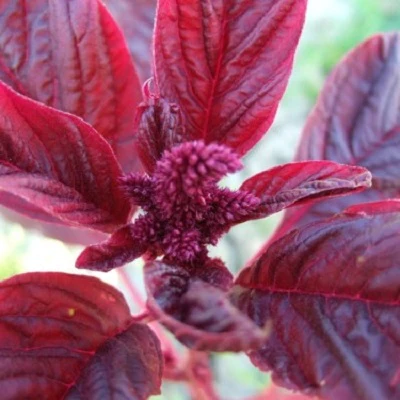New Account | Seed Mix |
Gift Certificates |AAS Winners |
Gardening Products
SEEDS: Unusual | Annuals | Perennials | Vegetables | Herbs | Trees
Amaranth ( Chinese Spinach ) Seeds
Useful gardening information
Sowing Instructions
Informative articles found on the web:
Amaranth Recipes - A small selection of low fat vegetarian amaranth recipes.
Amaranth Recipes - Amaranth recipes collected from Usenet.
Cooked Amaranth - Basic recipe for cooked amaranth from Deborah Madison's book Vegetarian Cooking for Everyone.
Mexico's Grain of the Gods: Cooking with Amaranth - Article with several recipes included.
The following seeds are in stock and ready to ship

JM208 Red Garnet ( Amaranthus tricolor )
Beautiful dark red/fuchsia blooms top large plants that can reach up to 10 feet tall! Beyond its aesthetic qualities, young leaves can be used for greens, and flower heads fill with seeds that can be toasted and eaten as grains. Because of its stunning height, seed-filled flower heads make a great source of food for goldfinches and other birds flying by. Makes a wonderfully nutritious micro-green as well!

